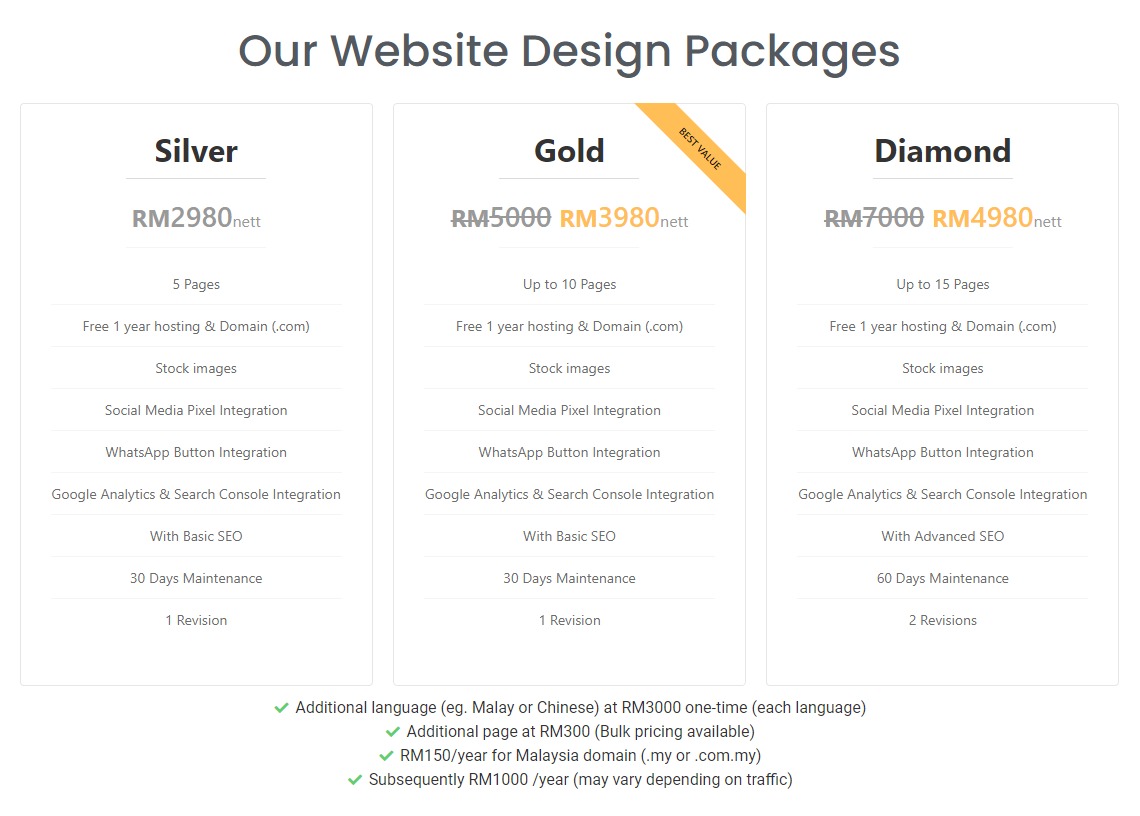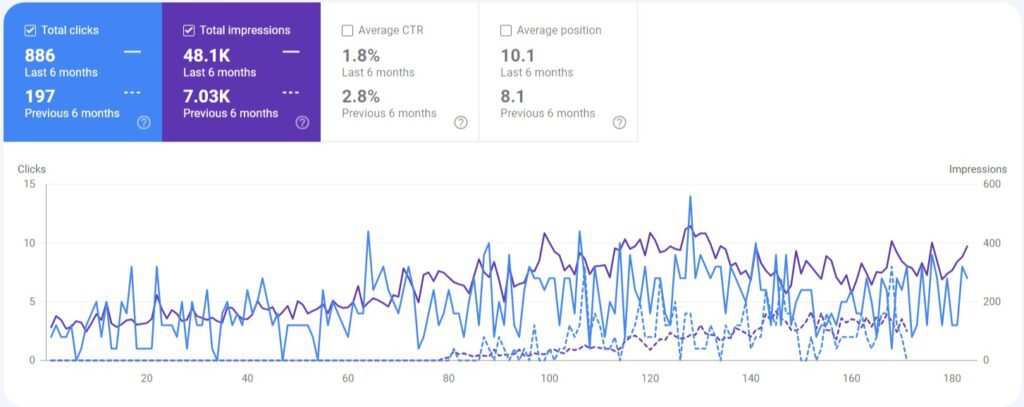
Website Design Malaysia
Do small businesses in Malaysia need a website in 2024? Home Hypercharge June 22, 2024 In Malaysia, shaping a top-notch website involves grasping national digital trends. Understand your audience’s tastes

Table of Contents
ToggleThis article discusses the importance of digital marketing for hospitals, including targeting the right audience, creating a user-friendly website, utilizing social media platforms, implementing SEO techniques, online advertising and paid campaigns, content marketing, online reputation management, and tracking and analyzing digital marketing efforts.
In our digital era, patients turn to the internet for healthcare information, making digital marketing vital for hospitals to connect with their audience. It boosts hospital visibility, patient engagement, referrals, and builds a strong brand image. In the sea of online healthcare information, a robust digital presence is a must for hospitals to shine and connect with potential patients.
Take SEO, for example. Hospitals that use SEO techniques can significantly enhance their online presence. By optimizing their website with relevant keywords and high-quality content, hospitals can rank higher in search results, making it easier for people searching for healthcare services to find them.
Paid advertising and targeted campaigns are equally essential. Hospitals can tailor these campaigns to specific demographics and locations, ensuring their marketing efforts have the most impact. This not only boosts visibility but also reaches those most likely to need their services, increasing patient numbers.
Identifying the right audience is key for hospitals to make their digital marketing work. For instance, a hospital aiming at young parents might share useful stuff about child health on social media. Another hospital focused on elderly care might share info about senior health.
By knowing what people do online, hospitals can make special marketing plans to connect with the right people. This helps hospitals get and keep more patients. Let’s say a hospital in a busy city sees that people there use phones a lot and like pictures and videos. So, they make a mobile-friendly website and fun social media posts to catch these people’s eye.
Good targeting helps hospitals find folks who really need their help. Like, a hospital great at fixing bones might aim at people looking for bone help online. This way, they talk to the right patients who need what they offer. Doing this well means more people get the help they need, and hospitals do better with their online marketing
When it comes to promoting hospitals using digital marketing, having a user-friendly website is essential. Your website acts as the hospital’s digital front door, often being the first point of contact for potential patients. It’s vital to make sure your website is easy to navigate, visually appealing, and filled with useful information to create a positive first impression and encourage patient engagement.
For example, a user-friendly hospital website should have easy-to-find menus, clear details about services and medical staff, and simple ways to schedule appointments and get in touch. By offering a seamless user experience, hospitals can meet the needs of online visitors and encourage them to explore the full range of healthcare services available.
Furthermore, in today’s digital world, mobile optimization is crucial. Many people use smartphones and tablets to access the internet, so hospitals must ensure their website works perfectly on all devices. This not only improves accessibility but also shows that the hospital is committed to providing a modern and convenient patient experience, which helps build a positive brand image.
Social media platforms are like a treasure trove for hospitals. They offer a fantastic chance to talk directly to patients and tell them about all the good things they do. Imagine hospitals posting interesting stuff on Facebook, Twitter, and Instagram. People who might need medical help could see this and get interested. This helps hospitals become more famous and make patients feel closer to them.
What’s even cooler is that social media lets hospitals have real conversations with people. It’s like chatting with a friend online. This makes hospitals look really good in the healthcare world.
But that’s not all! Hospitals can use social media to show off how smart they are. They can share cool articles, tips, and stories about how they’ve helped people. This tells everyone that hospitals know their stuff and care about educating patients.
When hospitals keep sharing useful stuff, they become trusted sources in their community and beyond. It’s like saying, “We’re here for you, and we know what we’re doing.” So, social media is a great way for hospitals to shout out about their good work and get more patients.

Incorporating search engine optimization (SEO) techniques is vital for hospitals aiming to boost their online presence and draw in more patients. For instance, hospitals can identify the specific keywords patients use when searching for healthcare services through in-depth keyword research. This helps hospitals fine-tune their website content to match these search terms, increasing the likelihood of appearing in relevant search results.
On-page optimization is another key part of effective hospital SEO strategies. By optimizing elements like meta titles, descriptions, and headings, hospitals can improve their chances of showing up in search results and attracting organic traffic. Moreover, creating high-quality, pertinent content that addresses patient needs and concerns is essential for SEO success. Hospitals can publish informative articles, blog posts, and patient resources to educate their audience and establish themselves as reliable sources of healthcare information.
Additionally, building links plays a vital role in hospital SEO strategies. Earning backlinks from respected healthcare websites enhances a hospital’s website authority and credibility in the eyes of search engines. This, in turn, leads to higher search engine rankings and increased online visibility. Implementing these SEO techniques can significantly impact a hospital’s ability to connect with potential patients, ultimately driving patient acquisition and retention rates.
For comprehensive support in implementing SEO techniques tailored for hospitals, exploring the digital marketing and SEO services offered by Hypercharge is a valuable option. Their expertise in optimizing websites and improving search engine rankings can be a valuable asset for hospitals seeking to enhance their online presence and attract more patients.
Online advertising and paid campaigns play a crucial role in a hospital’s digital marketing strategy. They offer powerful ways to connect with potential patients. Let’s break it down:
1. Targeted Promotion: Hospitals can use online ads to reach specific groups of people. For instance, a children’s hospital can aim their ads at parents in a particular area, promoting services like pediatric check-ups and vaccinations.
2. Precision in Search: Through platforms like Google Ads, hospitals can display their ads to users who are actively looking for healthcare services. If someone searches for “orthopedic surgeons near me,” a hospital specializing in orthopedics can make sure their services appear prominently in search results.
3. Enhanced Visibility: These strategies not only boost a hospital’s visibility but also make it more accessible to individuals seeking medical solutions. This can lead to more patients and greater recognition.
Content marketing is a smart approach that goes beyond traditional advertising for hospitals. Instead of just pushing ads, hospitals create valuable and interesting content to attract and keep patients engaged. Imagine a hospital sharing blog posts, articles, and infographics on its website. They can cover topics like healthy living, ways to prevent diseases, and the latest medical advancements. This doesn’t just provide helpful info to patients but also shows the hospital as a trusted source of healthcare knowledge, which builds trust.
Hospitals can take this content and share it on social media like Facebook, Twitter, and Instagram. They can create visually appealing posts with quick health tips, patient success stories, and updates on medical progress. By regularly sharing relevant and interesting content, hospitals can keep a strong online presence and connect with potential patients. This helps bring in new patients and keep existing ones.
Furthermore, hospitals can use email marketing to send this content directly to patients and subscribers. They can send out newsletters with informative articles, health advice, and updates on hospital services. This keeps the audience engaged and informed, reinforcing the hospital’s reputation as a reliable source of healthcare information. It’s like staying in touch with old friends – it builds strong, long-lasting relationships that benefit the hospital’s digital marketing efforts.
Effective online reputation management is vital for hospitals to maintain a positive image and build trust with potential patients. Handling patient reviews and feedback professionally contributes to building credibility and attracting new patients. A positive online reputation plays a significant role in shaping the perception of the hospital and its services.
Furthermore, online reputation management also involves addressing any negative feedback or reviews in a constructive and empathetic manner. By responding promptly and professionally to negative comments, hospitals can demonstrate their commitment to patient satisfaction and care, thereby mitigating any potential damage to their reputation.
For instance, when a hospital receives a negative review online, a well-crafted and compassionate response can not only resolve the issue with the specific patient but also showcase the hospital’s dedication to addressing patient concerns and improving their experience.
In addition, proactive reputation management involves engaging with patients on various online platforms to showcase the hospital’s commitment to transparency and quality care. This can include sharing patient success stories, highlighting positive feedback, and addressing common patient queries through regular and informative posts on social media and the hospital’s website.
By consistently communicating the hospital’s values and patient-centric approach, it enhances the hospital’s reputation and fosters trust among existing and potential patients. This trust is vital for attracting and retaining patients in the highly competitive healthcare industry.
Tracking and analyzing digital marketing efforts are like having a compass for hospitals. They help hospitals understand if their strategies are working in getting and keeping patients. Think of it as checking the dashboard of a car to see how it’s performing.
For example, hospitals can see how many people visit their website, how many of those visitors become patients, and how much people engage with them on social media. These are like checking if the car is going the right speed and using fuel efficiently.
When hospitals look at this data, they can figure out what’s working and what’s not. If they see that patients like certain types of information, they can make more of that. It’s like making sure you have your favorite snacks for a road trip.
Also, it helps hospitals decide where to spend their money. They can see what’s giving them the most for their budget, like choosing the best roads for a trip.
Keeping an eye on these things helps hospitals keep up with what patients want. It’s like knowing the latest shortcuts on a journey. Hospitals need to do this to keep growing and doing well in the digital age.
In conclusion, the effective use of digital marketing strategies is essential for hospitals to succeed in today’s competitive environment. These strategies are pivotal in acquiring and retaining patients, ultimately contributing to the hospital’s overall success and growth. For instance, hospitals that employ targeted online ads and paid campaigns can effectively reach potential patients in specific demographics and regions, maximizing their impact.
Additionally, utilizing social media platforms like Facebook, Twitter, and Instagram boosts brand visibility and patient engagement, leading to more patient referrals and a better brand reputation.
For comprehensive digital marketing and SEO services tailored to hospitals, we invite you to explore Hypercharge. As a leading agency with a focus on enhancing the online presence of healthcare businesses, Hypercharge offers expertise in delivering results-driven services. With over 8 years of experience, Hypercharge is dedicated to providing long-term growth solutions, helping hospitals effectively promote their services and connect with their target audience in the digital landscape.

Do small businesses in Malaysia need a website in 2024? Home Hypercharge June 22, 2024 In Malaysia, shaping a top-notch website involves grasping national digital trends. Understand your audience’s tastes

Welcome to the world of clinic marketing, where we’ll uncover the secrets of attracting and keeping patients. Whether you’re a healthcare facility or a clinic owner, marketing is your superpower

Hey there, fellow Malaysians! Are you part of a law firm looking to stand out online? Let’s dive into the exciting world of SEO (that’s search engine optimization) and see
Hypercharge is a SEO agency in Malaysia to help SMEs rank on maps (eg. clinics near me)
Created by Hypercharge. 2024 All Rights Reserved.
Ready to Hypercharge your business? Get a free consultation and website audit today!
